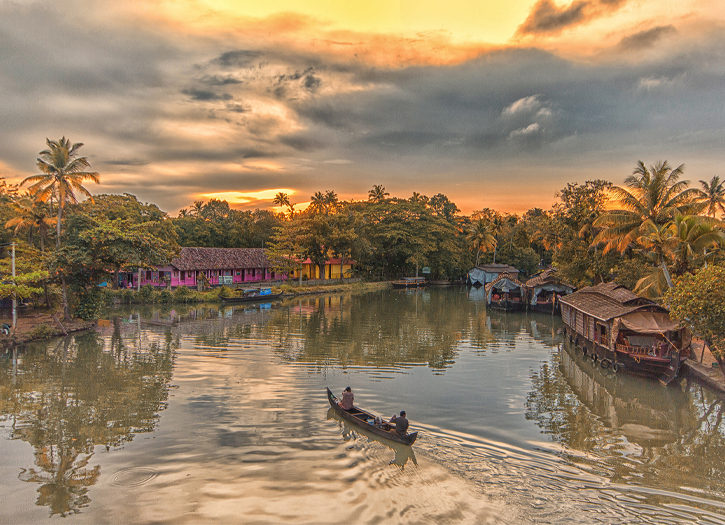The first case of the COVID-19 pandemic in Kerala (which was also the first in all of India) was confirmed in Thrissur on 30 January 2020. Kerala has one of the lowest case fatality rate in India (0.35%) compared to the national average of 1.54%. Kerala’s success in containing COVID-19 has been widely praised both nationally and internationally.
As of 14 October, there have been 3,10,140 confirmed cases with 2,15,149 (69.37%) recoveries and 1,066 deaths in the state.The largest single-day spike was reported (11,755 cases) on 10 October and Kerala now has the 7th highest number of confirmed cases in India. As of October 2020, more than 90% of known cases were due to community spread. The state capital is the worst hit, Trivandrum (15%) followed by, Malappuram (12%), Kozhikode (11%) and Ernakulam(10%) districts.The government of Kerala declared high alert from 4 to 8 February and starting 8 March 2020 due to coronavirus cases being reported from the state.As of 9 March, more than 4000 persons are under home or hospital quarantine in Kerala.
On 10 March, the Kerala government arranged special isolation wards in prisons across the state. The government of Kerala shut down all colleges and schools up to grade 7. The government also urged people to not undertake pilgrimages, attend large gatherings such as weddings and cinema shows. On 19 March, Chief minister Pinarayi Vijayan announced a stimulus package of Rs 20,000 crore (€2.5 billion; $2.6 billion) to help the state overcome both the COVID-19 epidemic and economic hardship caused by it.
This includes Rs. 500 crore for healthcare, Rs 2,000 crore for loans and free rations, Rs 2,000 crore for creating jobs in rural areas, Rs 1,000 crore for families with financial difficulties, and Rs 1,320 crore for paying two months pensions in advance. The government has also ordered salons and workout centers to shut down. This is in order to prevent the virus from spreading via direct contact.On 23 March, Chief minister Pinarayi Vijayan announced a statewide lock-down till 31 March to prevent further spread of the coronavirus. This was before the central government declared a nationwide lock-down.
Initially, there will be a basic medical screening for those wishing to return home. Only those found asymptomatic will be allowed to board the aircraft. Medical teams will be deployed at the arrival lounge with screening facilities. The passengers will be home quarantined for 14 days and monitored by ward-level Vigil Committees in their residences. Those who wanted to stay in corona care homes will be shifted to such centres near airports. The state government has requested the Centre Government to provide passengers’ list before their arrival in Kerala Airports. The expatriates have to strictly undergo the mandatory quarantine.
In late March, two researchers from the University of Cambridge came up with a new mathematical model that predicts a flat 49-day countrywide lockdown or sustained lockdown with periodic relaxation extending over two months may be necessary to prevent COVID-19 resurgence in India. Finally, Kerala designated four districts – Kasargod, Kannur, Kozhikode and Malappuram – as ‘Red Zone’.Lock-down restrictions in the Green and Orange Zones were relaxed on 20 and 24 April. Inter-state and inter-district travel would continue to be banned. People travelling outside their homes would be required to wear a mask. Every district would be given a special plan for preventive measures. According to the government’s order, 13 services, including air, rail and inter-district bus services, will not be available in the zoning system throughout the lockdown.
Tourism is a major contributor to the state’s economy. Following coronavirus confirmation in Kerala, there were waves of cancellations of hotel bookings and tour packages. However, following the outbreak, the sales have gone down, directly hitting the economy. The state’s economy is largely dependent on NRI remittances and the economic slowdown of affected Gulf countries is expected to have a direct impact. KSRTC, Kerala’s state-owned public transport system has reported losses worth crores due to reduced number of travelers. The practice of social distancing has also brought down the numbers of those who go out on weekends or do shopping, thus affecting local traders and vendors.







Add Comment
You must be logged in to post a comment.